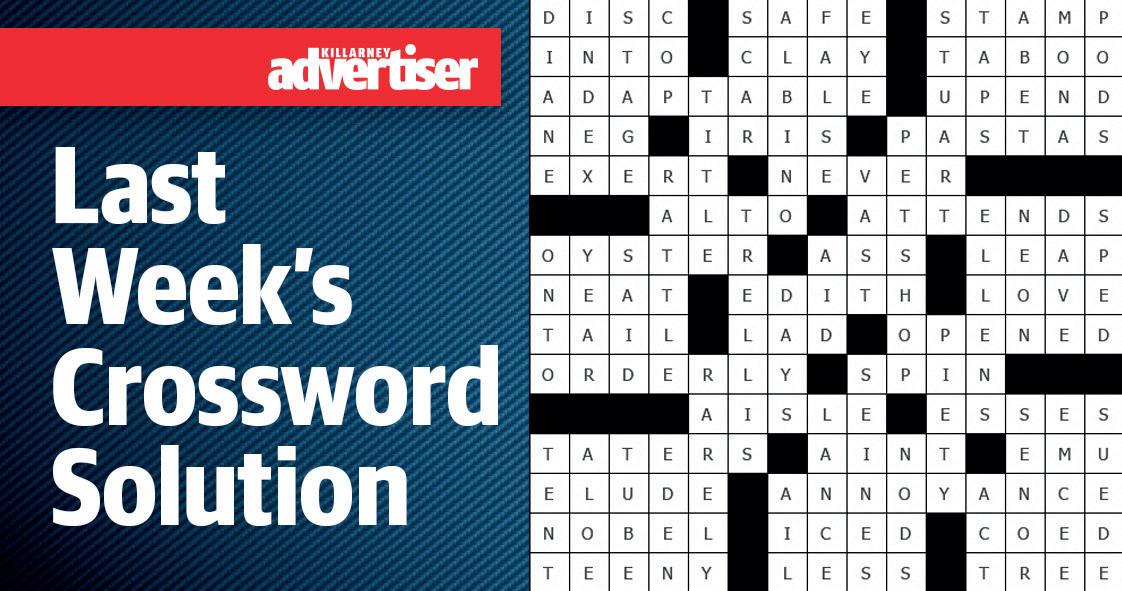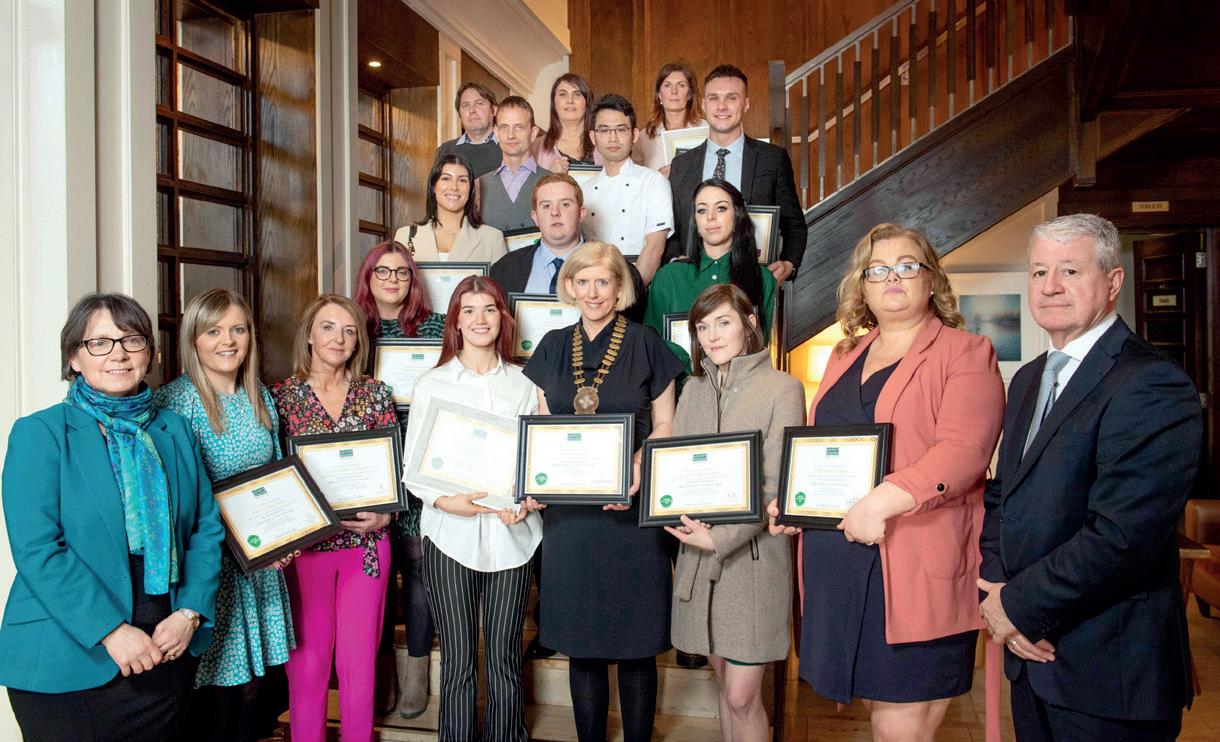
5 minute read
Fitzgerald Stadium to host historic intercounty camogie match
History will be made in Fitzgerald Stadium tomorrow (Saturday) when the venue hosts its first-ever inter-county camogie match.
| By Sean Moriarty
The Kerry senior team will get their National League campaign underway against Westmeath.
While the famous stadium has hosted inter-club matches before – back in the 1960s and 1970s – this will be the first time that a National Camogie League game has been played there. Camogie is a predominantly North Kerry-based sport but it has been growing particularly well in the Killarney area in recent years.
The Killarney Advertiser understands that a preferred venue in North Kerry became unavailable and that the opportunity fell to Fitzgerald Stadium.
Tomorrow's National League game will be a massive boost to grassroots camogie locally.
“It is a big deal for the sport,” Sarah Dineen, Chair of Killarney Camogie Club, told the Killarney Advertiser.

“Camogie is booming in Killarney, we had 44 girls at Under 8 and 10 training last week which is unheard of.”
The club’s Under 13 team will play a demonstration match during half time of Saturday’s fixture which is set for a 2pm throw-in.
Cillard's Clodagh Walsh and Sara Murphy of Clanmaurice have been named as the joint Kerry captains for the year ahead.
Know Your Rights
Responsible dog ownership
There has been a lot of discussion recently about dog ownership and the current level of dog control regulations in Ireland.
‘Man’s best friend’, dogs, particularly large dogs, represent a potential danger to pedestrians, motorists and livestock if they are not kept under control at all times.
All dog owners have a responsibility to ensure that their dog is properly cared for and that they are not a nuisance or a danger to their neighbours or other members of the public. Dogs that are not kept under proper control may also cause nuisance and annoyance by damaging or defecating on neighbours’ property, or by excessive barking. Local authorities are responsible for the control of dogs under the Control of Dogs Act 1986. They can appoint dog wardens, provide dog shelters, seize dogs, impose on-the-spot fines and take court proceedings against dog owners.
Legal Requirements
If you are a dog owner, you must have a dog licence and get your dog microchipped.
There are three types of dog licence: An individual dog licence, which costs €20 and is valid for one year.
A ‘lifetime of dog’ licence, which costs €140 and is valid for the dog’s lifetime. A general dog licence, which costs €400 and is valid for one year.
You can apply for an individual or lifetime dog licence at your local post office or licences.ie. A general dog licence application must be submitted to your local authority.
• English Bull Terrier
• Staffordshire Bull Terrier
• Bull Mastiff
• Dobermann Pinscher
• German Shepherd (Alsatian)
• Rhodesian Ridgeback
• Rottweiler
• Japanese Akita
• Japanese Tosa
These dogs (or strains and crosses of them) must:
Be kept on a short strong lead by someone over the age of 16, who is capable of controlling them.
Be securely muzzled whenever they are in a public place
Wear a collar with the name and address of their owner, at all times.
All dog owners owning purebred or crossbred dogs belonging to this list of breeds must ensure that these dogs are securely muzzled and on a strong leash not more than two metres in length when in a public place.
The rules on muzzling and leashing do not apply to dogs used by the Gardaí, the Dublin Harbour Police, State Airport Police and bona fide rescue teams in rescue operations. The rules on muzzling do not apply to guide dogs for the blind.
Stray Dogs
first time tomorrow
Your dog must be under your control, or the control of another responsible person, if it is outside your home or premises. You are liable for any injury or damage your dog causes to people or livestock.
It is an offence to let a dog under your control foul in a public place. If it does happen, you, or the person in charge of the dog, must remove the faeces and dispose of them in a suitable, sanitary manner. If a dog fouls in a public place, and the owner doesn’t remove the faeces, you can make a complaint to the District Court under litter laws. Before you do this, you must inform the dog owner by completing a form available from the Dog Control Unit of your local authority.
Dangerous Dogs
These are a list of breeds of dogs that are considered to be potentially more dangerous to people than other breeds of dog. Additional rules apply to the following breeds (and strains/crossbreeds):
• American Pit Bull Terrier
Stray dogs are dogs that are in a public place and are not accompanied by the owner or a responsible person. Interestingly, dogs that are not under proper control are also considered stray dogs. You can receive an on-the-spot fine if your dog is not under proper control. Stray dogs can be seized by the dog warden or Gardaí and brought to a dog pound. These dogs may be put down or re-homed if their owners do not claim them within five days. If your dog has strayed or is missing, you should contact the local dog pound directly to check if your dog is there. Before you collect it, you will have to pay a re-claim fee and produce a current dog licence. If you do not have a current dog licence, you must get one before collecting your dog.
Noisy Dogs
If your neighbour’s dog won’t stop barking and you are unable to resolve the issue with the dog owner, you can make a complaint to the District Court and look for a hearing. When you get a court date, you must notify the dog owner using a prescribed form, which is available from your local authority or District Court.
You can call the local Citizens Information in Kerry on 0818 07 7860 from Monday to Friday, 10am to 4pm. Alternatively you can email on tralee@citinfo.ie or log on to www. citizensinformation.ie for further information.




Transition Year students from Killorglin Community College have won a national award.


| By Michelle Crean
They were announced as the winners of the Think Languages 2022 social media competition which is in conjunction with Languages Connect, an annual celebration of languages and culture.
The fifth annual #ThinkLanguages event was the biggest yet with over 15,000 TY students taking part from 180 schools nationwide.
This year’s theme once again focused on 'Think Global, Act Local'. Students were encouraged to look at the diversity of languages spoken within their school, community and beyond as inspiration for their activities and events.
Two Transition Year classes together with their teachers, Ms Saoirse Riordan and Ms Karen Fitzgerald, organised a variety of events over a two-week period in November.
These activities included a language class, whereby students of different nationalities taught the Second Years French, German, Ukrainian, Afrikaans and Tamil. There were also language workshops, including a whole school Irish Sign Language workshop along with Polish and Chinese, an exhibition, ‘Le Petit Déjeuner’ and a primary school lesson in which the TY groups taught Spanish to the Fourth Class pupils of Scoil Mhuire, Killorglin. On top of all this, they created a video using greetings in different languages.







